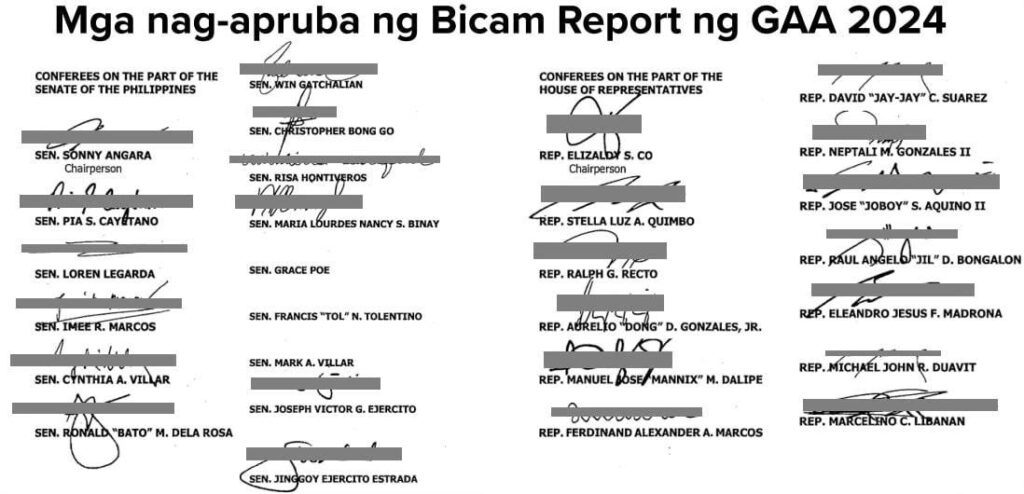As Filipino electorates prepare to participate in another electoral cycle, the importance of a credible and reliable Commission on Elections (COMELEC) cannot be overstated. Enshrined in the 1987 Constitution, the mandate of the COMELEC extends beyond mere administrative oversight. It is tasked with safeguarding democracy, ensuring that every vote cast in the Philippines is a reflection of the people’s will—free from the taint of violence, coercion, and deceit. Yet, as the political landscape continues to evolve, the challenges faced by the COMELEC have compounded, and its role has become increasingly critical in the eyes of an electorate desperate for change.
The recent reports of election-related violence, misogynistic remarks targeting candidates, and the insidious practice of vote buying paint a disturbing picture of the state of Philippine democracy. These issues not only undermine the integrity of the electoral process but also threaten the very foundation of our Republic. What is particularly alarming is the apparent normalization of these practices, as if they were an accepted part of the political campaign landscape. This is a call to action for the Commission—no longer can we sit idly by while politicians engage in egregious misconduct with impunity.
Historically, the COMELEC has issued show-cause orders when allegations of electoral fraud, violence, or other related offenses arise. Sadly, these measures often appear to be little more than lip service—publicity stunts that lack the teeth necessary for meaningful accountability. It is imperative that the COMELEC transitions from gestures of intention to actionable results. To fulfill its constitutional mandate, it must display the political will to impose sanctions on candidates who engage in vote buying and other forms of electoral malfeasance. The consequences of inaction cannot be understated. When candidates with questionable legacies and ties to systemic corruption are allowed to operate unchecked, it creates an environment where electoral violence can flourish.
Political dynasties, particularly those deeply entrenched in local politics, can manipulate the democratic process to maintain their power, perpetuating a cycle of disenfranchisement for the Filipino people. If the COMELEC is serious about restoring faith in democracy, it must rigorously investigate and hold accountable those who abuse power for personal gain. Under the leadership of George Garcia, there lies a unique opportunity for the COMELEC to demonstrate its commitment to upholding the democratic principles embedded in our Constitution. The Filipino people are watching closely to see whether or not Garcia can translate good intentions into concrete actions. The hope is that high-profile electoral offenders—especially those from established political dynasties—will finally face consequences for their actions. This is not merely about punishing wrongdoing; it is about setting a precedent, establishing a national ethos where accountability is paramount, and the rule of law prevails.
With the eyes of citizens, activists, and watchdog organizations turned toward Garcia and the COMELEC, your actions will dictate whether this election will be remembered as a pivotal moment in Philippine democracy or a mere continuation of its decline. It is essential to acknowledge the collective responsibility we share in this process. The electorate must remain vigilant and engaged, advocating for an electoral landscape free from violence and manipulation. Citizens should utilize their voices, both in the voting booth and on social platforms, to demand transparency and accountability—a culture wherein every Filipino can exercise their right to vote without fear or intimidation.
The media, too, has a crucial role to play in this electoral equation. By reporting on incidents of violence and corruption, journalists can empower the public to make informed decisions and hold wrongdoers to account. Investigative reporting on the nexus between politicians and vote-buying schemes can shine a light on the depths of corruption that often escape public scrutiny. With social media amplifying these narratives, people now have the ability to organize and mobilize against electoral fraud, challenging the status quo and demanding better governance.
Additionally, it is necessary for the COMELEC to engage with local and international stakeholders who can provide additional oversight and resources. Collaborating with civil society organizations, which often have frontline knowledge about electoral violence and corruption, can enhance the Commission’s capacity to act effectively. International coalitions can also bring scrutiny to the Philippines’ electoral processes, placing pressure on the government to maintain accountability and democratic integrity.
The time has come for the COMELEC to rise to the occasion and reaffirm its commitment to protect the sanctity of our elections. The stakes are high, and the path forward will not be easy, but it is essential for the future of our nation. We must demand that the COMELEC embarks on a thorough and comprehensive investigation into reports of violence and vote buying. Along with penalizing those found guilty, the Commission should also implement educational campaigns to inform voters about their rights and how to report electoral malpractice.
Empowering the electorate with knowledge is a powerful tool in the fight against corruption and electoral deceit. The responsibility of safeguarding democracy does not rest solely on the shoulders of the COMELEC. Every Filipino citizen must play a part in this crucial effort, demonstrating that we will not accept a status quo characterized by violence, misogyny, and deception. Grassroots movements that actively engage communities can create a strong foundation for demanding more accountable governance. Local leaders, organizations, and concerned citizens should form alliances to advocate for fair elections and promote a culture of integrity.
Moreover, it is vital for young people to participate in this process. The youth represent a significant portion of the electorate and embody the hopes for a brighter future. Their voices must be amplified, their concerns taken seriously, and their energies harnessed to challenge the existing political dynamics. Initiatives aimed at educating and engaging young voters about the electoral process could lead to a more informed and active citizenry, ultimately transforming the political landscape.
Ultimately, the COMELEC’s response to the challenges it faces during this election cycle will send a clear message about the future trajectory of Philippine democracy. Will it choose to be a champion of free and fair elections, committed to upholding the rule of law, or will it remain passive, allowing violence and corruption to undermine the very essence of what it means to be democratic?
The Filipino people deserve a robust commission in its pursuits, unyielding in the face of intimidation, and resolute in its mission to promote the public good. As we look ahead, it is crucial to recognize that democracy is not a given; it is a continuous struggle that requires vigilance, courage, and unwavering commitment from all sectors of society.
Let us hope that with strong leadership, strategic partnerships, and an engaged citizenry, the Philippines can navigate these turbulent waters. Accountability and reform are not just ideals to aspire to; they must come to fruition to ensure that the promise of a free, decent, and reliable electoral process is upheld for generations to come. In conclusion, the COMELEC stands at a pivotal juncture. It can either reinforce the democratic principles enshrined in our Constitution or risk further alienation of the electorate.
The call to action is clear: the time for accountability is now. The Filipino people deserve to see tangible consequences for electoral crimes that have plagued our democracy for too long. Under the chairmanship of George Garcia, let us hold on to the hope that we will witness the unearthing of political wrongdoing and a recommitment to the values that underpin our nation. It is through collective action and relentless pursuit of justice that we will break the cycle of corruption and create a future where every Filipino can participate in the democratic process freely and fairly.




